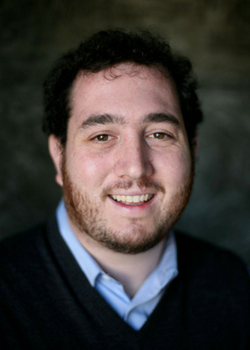“And God spoke to Moses, saying: ‘Command your brother and his sons regarding the Torah of the offerings.” (Leviticus 6:1-2)
Mitzvah is one of the foundational words of Jewish life. Its root comes from the verb which is the name of this week’s parasha: Tzav, “command.” Despite its colloquial usage as “good deed,” mitzvah really means “commandment”—a holy edict, meant to give shape and substance to what it means to live as a member of the Jewish covenant.
As has often been noted, more than Judaism is a religion of faith claims, it is a religion of sanctified actions. Jewish life is not primarily defined by the theology that one holds, but rather by the mitzvot that enact those commitments into daily practice. By the traditional reckoning, the Torah is said to contain 613 mitzvot, to which the later rabbinic tradition adds thousands more, which introduce holiness into every aspect of our lives.
Mitzvot come in three categories – theological, ethical, and ritual. Theological mitzvot guide us in our relationship with the Divine: “You shall have no other gods before me” (Exodus 20:3). Ethical mitzvot train us in how to treat others: “You shall love your neighbor as yourself” (Leviticus 19:18). And, ritual mitzvot teach us to add moments of sanctity to our lives: “Guard the Shabbat day and keep it holy” (Deuteronomy 5:12). Taken together, this system of theological, ethical, and ritual imperatives are referred to collectively as halakha, the sacred path of the commandments.
Yet, the concept of “commandedness” is a difficult one. Speaking personally, I have always struggled with the notion of a God who sits on a heavenly throne issuing decrees about what I may or may not eat, or what forms of labor I may or may not engage in on Shabbat. For me -- as I believe to be true for many Jews -- I experience God not primarily as an anthropomorphic King and Lawgiver, but rather in more abstract terms: an ennobling Force, a loving Guide, an animating Spirit. Put another way, while I am deeply committed to living a life of mitzvot (commandments), I wrestle with a genuine ambivalence over the nature of the metzuveh (commander).
This tension bothered me for many years – leaving me with nagging doubts about the logic of observing the mitzvot without necessarily believing they reflect the actual commanding voice of God. Then I was taught an insight which transformed my understanding of this challenge forever. It turns out that while the Hebrew verb tzav, the root word of mitzvah, means “to command” – in Aramaic, the other great ancient Jewish tongue and the language of the Talmud, the verb instead means “to connect.”
With this shift, mitzvot became not a set of obeisances owed to a Sovereign, but a collection of points of connection to the Holy One. Whether or not God cares about my dietary choices ceased to be important, since the mitzvah of kashrut became an opportunity for me to reach out to the Divine through my intentional choices. The mitzvah of Shabbat transformed from a burden externally imposed upon me, to an opportunity to quiet the world in order to better hear the whisper of the still, small Voice.
While understanding mitzvah as commandment led to me to doubt, understanding mitzvah as connection led me to the relationship. And, it is in this re-framing that I learned a new way to walk the path of halakha— not as a servant, but as a partner with the Holy One, Who wants, more than anything else, to connect.
Shabbat Shalom


 Download PDF
Download PDF